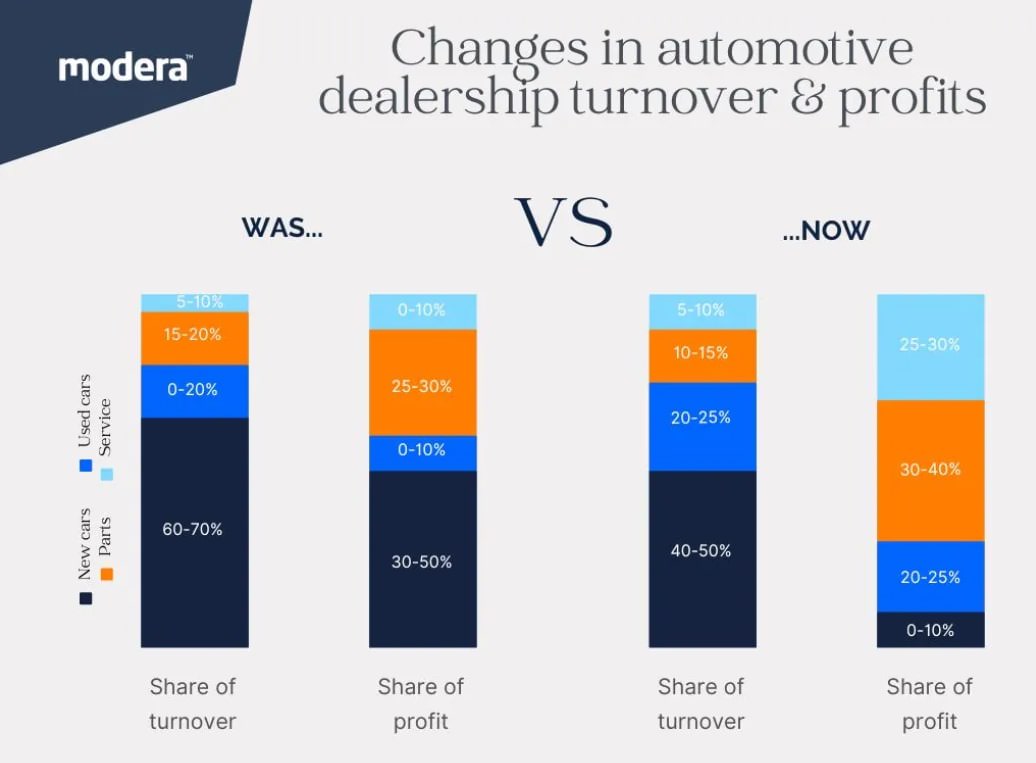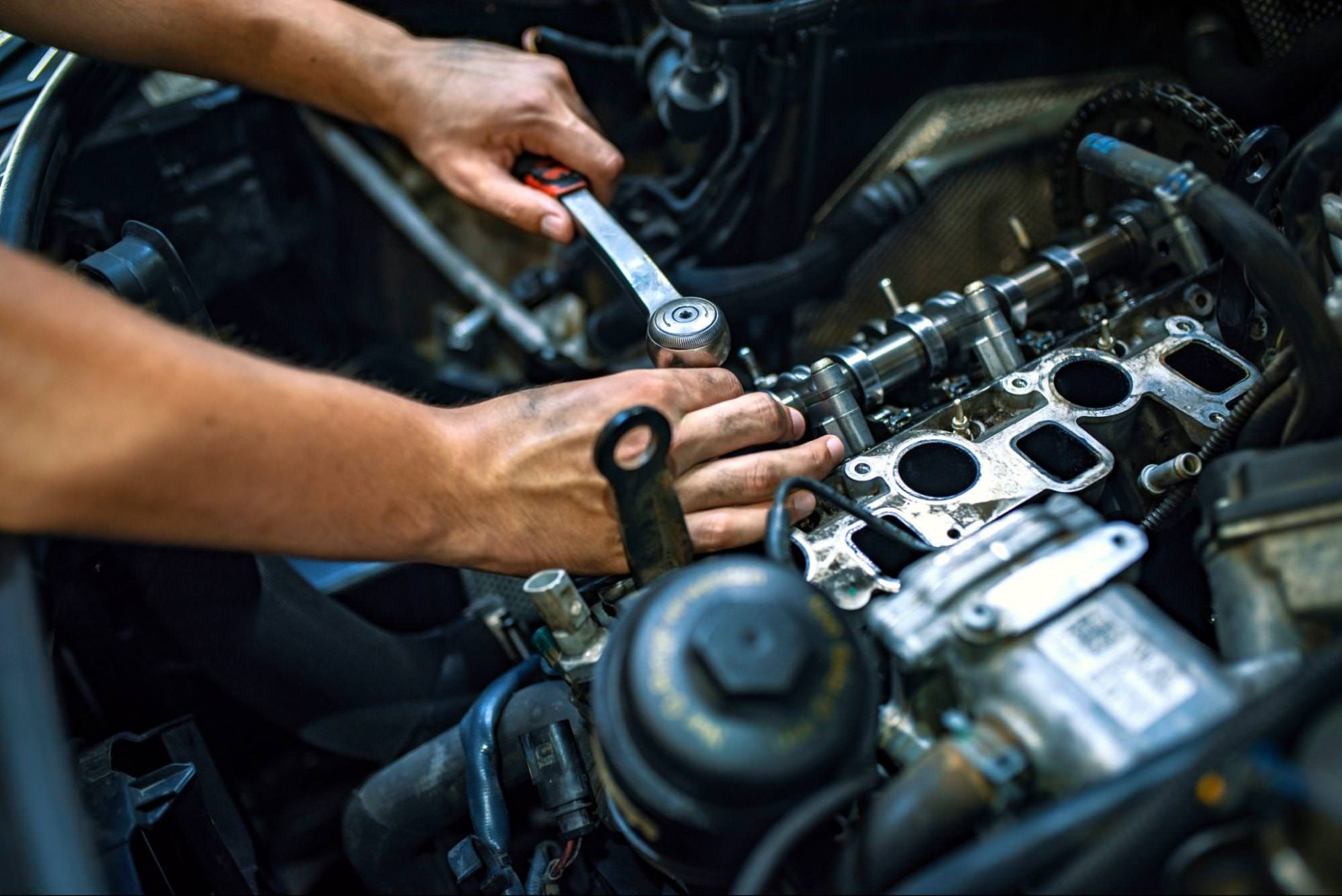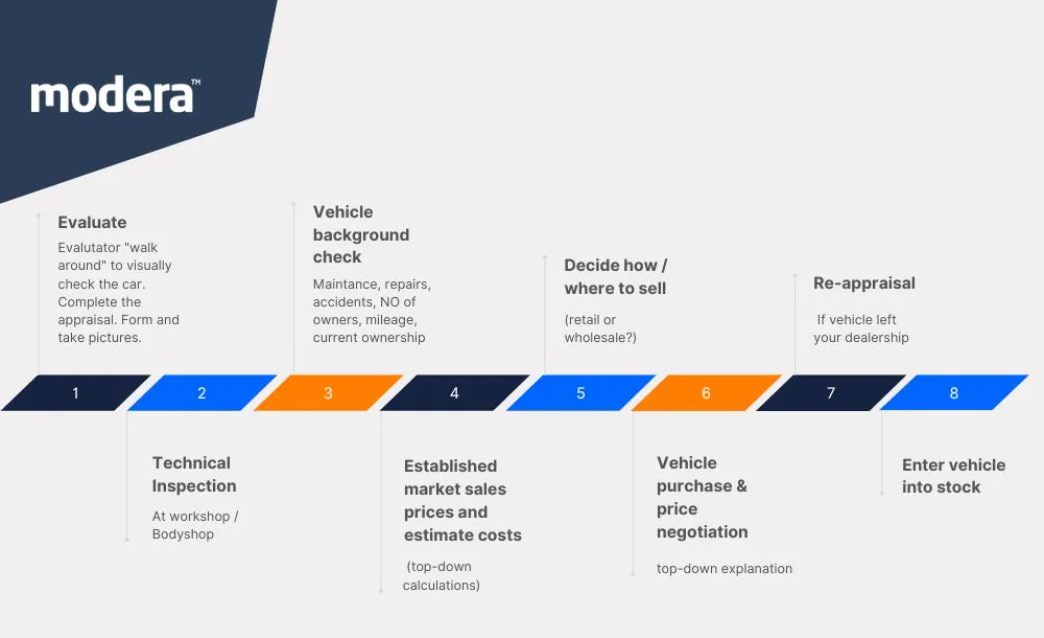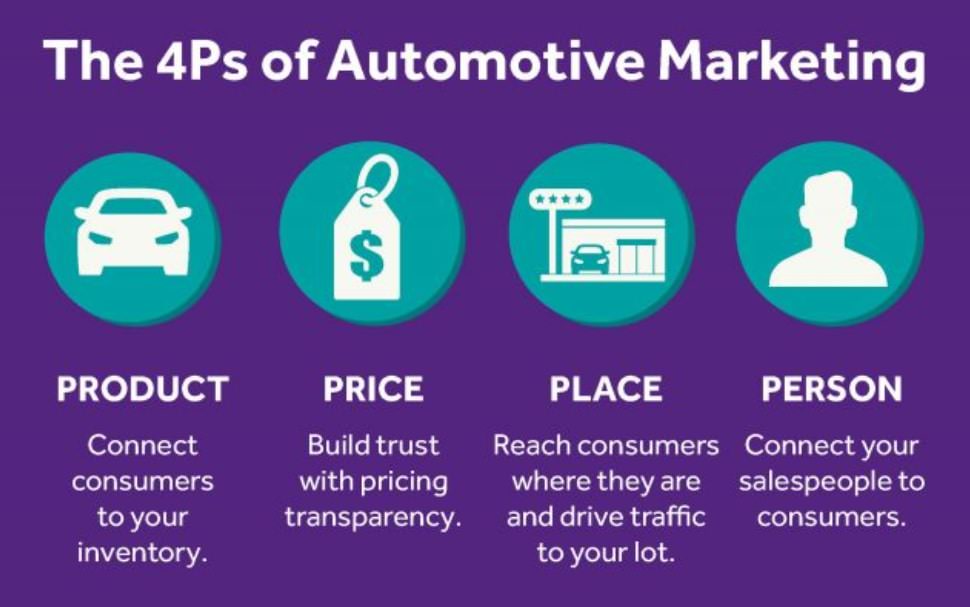- Blog
- How Do Used Car Dealerships Make Money?
How Do Used Car Dealerships Make Money?
Discover more about how used car dealerships profit, from the nuances of vehicle acquisition and reconditioning to the complexities of in-house financing and after-sale services.

Principais conclusões
- Used car dealerships make money by buying cars at a lower price and selling them at a higher price.
- Used car dealerships also earn extra income by offering financing options to customers.
- Trade-ins help dealers get cars at a low cost to resell.
- Extended warranties and service packages provide additional profit opportunities.
- Some dealerships offer repair and maintenance services to keep customers coming back.
The automotive dealership industry is a complex system that operates far beyond the surface-level transaction of buying a car.
While purchasing a vehicle might seem like a simple process - selecting a car, negotiating the price, and driving away - the business model behind dealerships is far more than that.

Source: Modera
In this article, we will explore the multiple revenue streams that contribute to a dealership's overall profitability, offering you a deeper insight into how to make money in this business.
How profitable can your used car dealership be? Very much if you know what you are doing!
Success depends on understanding market trends, buying the right vehicles at the right prices, and setting competitive markups. By offering a good selection of cars and using financing options and add-ons like warranties, you can increase your profits.
Revenue streams will be different for different kinds of dealerships. eCarsTrade clients have many different types of businesses, but in this article we’ll focus on a typical B2C dealership.
With the right approach and business sense, running a used car dealership can be a highly rewarding and lucrative business.
Primary revenue streams
The primary revenue streams for a used car dealership include vehicle sales, financing, certifications, and warranties.
These core revenue streams are crucial for driving the profitability of a used car dealership.
Vehicle sales
Vehicle sales and markups form the cornerstone of a B2C used car dealership's revenue model.
As the primary source of income, dealerships acquire pre-owned vehicles, often through trade-ins, auctions, or direct purchases, and then sell them to consumers at a retail price that includes a markup.
The markup is calculated based on factors such as the vehicle's condition, market demand, and the dealership's operating costs.
By strategically pricing their inventory, dealerships aim to maximize profits while remaining competitive in the market, making vehicle sales and markups the driving force behind their financial success.
The cheaper the car, the less margin built into its list price. The more expensive the car, the more potential for markup.
Financing
Financing plays a crucial role in the profitability of used car dealerships, often adding considerable income beyond the vehicle's sale price.
When customers finance through the dealership, the dealer earns a commission by securing a loan with a slightly higher interest rate than what the lender offers. This difference directly contributes to the dealership's profits.
Additionally, dealerships may offer in-house financing, where they provide the loan themselves, allowing them to collect interest over time. This not only makes it easier for customers to buy but also creates a steady stream of revenue for the dealership.
Certification and warranties
By offering certified pre-owned vehicles, dealerships can justify higher prices, as certification assures buyers that the car has passed a rigorous inspection process and meets specific quality standards.
On the other hand, selling extended warranties provides an extra layer of security for the buyer while generating additional income for the dealership. These warranties often come with high profit margins, as they offer peace of mind for the customer but rarely require the dealership to cover significant repair costs.
Secondary revenue streams
Secondary revenue streams, including service packages, selling parts, and trade-ins, are vital for enhancing the financial stability of a used car dealership.
They complement the primary income from vehicle sales and help create a stronger business model.

Service packages
Service packages, such as maintenance plans and extended warranties, not only generate recurring revenue but also strengthen customer relationships by ensuring that buyers return to the dealership for regular upkeep.
These packages often include routine services like oil changes, tire rotations, and brake inspections, as well as coverage for some major repairs.
Selling parts
Selling parts and accessories, like replacement components or custom add-ons, offers another steady income source, often with high profit margins.
Dealerships often stock a range of parts, from essentials like brakes, filters, and batteries to optional accessories such as custom wheels, audio systems, and performance upgrades.
You can offer both original parts and aftermarket products at a premium, for buyers who seek upgrades or replacements for their vehicles.
Trade-ins
Trade-ins are a particularly strategic revenue source. When customers trade in their old vehicles, dealerships acquire inventory at below-market rates. These trade-ins can either be resold at a higher margin after reconditioning or auctioned off, providing quick cash flow.

Overview of used car trade-in and purchase process
You need to be smart about pricing these trade-ins. Offer enough to make the customer happy but not so much that you can’t make a profit when you sell the car.
Check out our guides for dealers!
Outdated sales approaches are ineffective considering the level of information available to buyers today. Still, there are many challenges in automotive sales that can hinder progress.
In order to increase sales, and outpace the competition, boost your dealership's online success with automotive SEO tactics.
To unlock hidden profits, learn how to buy, repair, and sell damaged cars, sourcing them from reputable European platforms like eCarsTrade.
Each of our guides offers actionable advice. Find the most suitable strategies for you, equip yourself with the right tools, and you’ll be a step closer to achieving your sales goals.
Increasing profitability in your dealership
What makes a car dealership successful? Understanding the multiple revenue streams that drive a dealership’s profitability reveals the sophisticated nature of the automotive industry.
Enhancing profitability requires a mix of innovation, strategic planning, and a focus on customer satisfaction. Here are some of the most important tips.
Efficiently manage your inventory from day 1
A successful dealership relies on car dealer software solutions and tools to manage its operations - especially when it comes to inventory management.
Regularly review your sales data and adjust your inventory. This will ensure you have the right mix of vehicles that your customers want, reducing the time cars sit on your lot and improving cash flow.
Be smart about choosing marketing channels
In today's digital age, it's more important than ever for automotive businesses to have a strong online presence to reach customers and sell cars. One of the best ways to achieve this is by implementing various digital marketing strategies.

Traditional four Ps of used car dealerships
Once you’ve established your social media presence, it’s important to regularly post updates, share photos of your inventory, and engage with your audience through comments and messages.
Don't take the market situation for granted - stay informed!
Are people looking for economical family cars, sporty vehicles, or specific models for spare parts? You need to know the demand so you can make the right purchase for your dealership.
Keeping up with trends is essential. Adapting your inventory to include the most searched for cars can set you apart and attract a broader customer base. You can also check out what other dealerships are doing in terms of inventory and prices, so that you can do better.
Invest in your sales team
Training your salespeople is one of the most important updates you can make to your business that will produce both short-term and long-term benefits, making your dealership grow.
They are the first people your customers will meet, and it’s important to make a good first impression. Be patient and support your buyer through this big purchase - the results will be worth it.
FAQ
► Is owning a used car dealership profitable?
Yes, if well-managed. Profit comes from smart buying, good pricing, and offering extra services.
► What should dealerships consider when choosing cars to stock?
Focus on demand, vehicle condition, and resale potential.
► How can I increase my dealership’s profitability?
Use trade-ins, offer financing and warranties, and control buying and repair costs.
► What makes a dealership successful today?
A mix of competitive prices, customer trust, and diverse revenue streams.
► How is markup calculated on used vehicles?
Based on purchase price, repairs, market demand, and desired profit.
► What other revenue streams do dealerships have?
Financing, warranties, service plans, and repair or maintenance work.
Grow with eCarsTrade
From the sale of new and used vehicles to trade-ins, financing, parts, and service departments, dealerships employ a well-rounded business model designed to maximize earnings and ensure long-term success.
At eCarsTrade, we can not only help you source great vehicles, but we also provide excellent resources. Our platform is designed to guide you through the auction process, offering tools and insights to help you make informed decisions.
eCarsTrade isn't just an online auction platform - we're also a valuable resource for car dealers and traders. Our blog offers expert advice on various topics, including:

